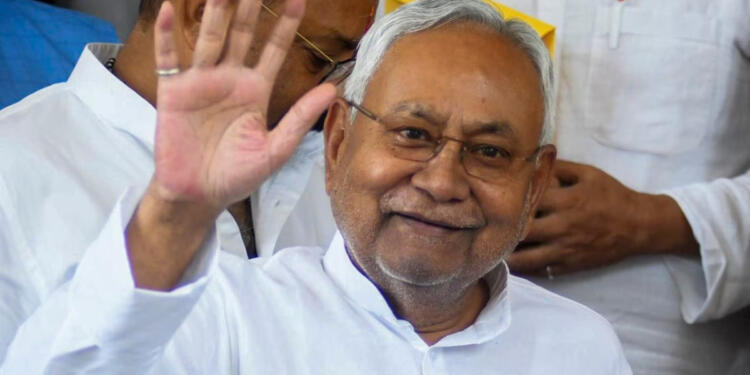In 2015, Nitish Kumar unveiled a grand vision for Bihar: the Har Ghar Nal Ka Jal scheme. This ambitious project aimed to bring tap water to every household in the state. Initially met with enthusiasm, the scheme has since faced numerous challenges, leaving many Biharis without the promised water supply.
Nitish’s Vision Meets Ground Realities
The scheme began in 2016 with a massive budget of Rs 30,000 crore. Its goal was to provide tap water connections to nearly 20 million homes. Early stages showed promise, with local contractors visiting villages and officials engaging with potential beneficiaries. Nitish’s reputation as “Sushashan Babu” (Good Governance Man) led many to have high hopes for the project’s success.
Nitish’s plan included supplying water for two hours each in the morning, afternoon, and evening. Even if only half of this goal was achieved, it would have been a significant improvement for many Biharis.
Taps Run Dry: Widespread Implementation Issues
Unfortunately, problems surfaced quickly. Common complaints included:
1. Unfinished projects
2. Extended water shortages
3. Poorly placed taps
4. Dirty water flowing from taps
In many areas, residents resorted to reinstalling hand pumps near the new taps, highlighting the scheme’s shortcomings. This symbolized a return to self-reliance in the face of government failure.
Nitish’s Water Woes: Case Studies
Several examples illustrate the scheme’s failures:
– Darbhanga district: Residents reported no water three years after funding was allocated.
– Aurangabad district: Two out of three villages in one panchayat received no connections.
– Siwan district: Completed borewells sat unused for over a year.
– Benipur constituency: Struggled to even get tap connections installed by 2021.
These cases represent just a fraction of the widespread issues plaguing Nitish’s flagship program. Personal accounts and reports from various sources paint a picture of systemic failure across the state.
Corruption
Investigations revealed corruption at multiple levels:
– RTI activist Shivprakash Rai exposed widespread commission-seeking by local officials.
– The Indian Express uncovered political patronage influencing the bidding process.
– FIRs were filed against 373 local officials, though the outcomes remain unclear.
The extent of misgovernance suggests connections to higher levels of authority.
Nitish’s Government Responds
Nitish’s administration took steps to address the problems:
– Establishing a toll-free number for complaints
– Reducing complaint resolution time to as little as 12 hours
– Allocating additional funds (Rs 4,706 crore) for unserved areas
However, these measures often seemed reactive rather than proactive, implemented only after intense public scrutiny and media pressure.
Political Shifts and Nitish’s Water Legacy
Recent political changes have impacted the scheme:
– Nitish’s JD(U) party rejoined the BJP alliance.
– The new Deputy Chief Minister cancelled 1,100 tenders worth Rs 4,500 crore, citing irregularities.
This political reshuffling has led to renewed scrutiny of the scheme’s implementation, particularly projects initiated under the previous JD(U)-RJD alliance.
Nitish’s Ongoing Challenges
As of October 2023, over 3,300 hamlets and settlements remained untouched by the scheme. Additionally, more than 7,300 areas with poor groundwater quality were identified, further complicating the project’s goals.
Public Discontent and Nitish’s Reputation
The scheme’s shortcomings have led to growing public frustration. Even members of Nitish’s own political allies have voiced concerns. In July 2024, an MLA from a ruling party protested against his own government due to acute water shortages in his constituency.
This incident highlights the scheme’s far-reaching impact on Nitish’s political standing and the daily lives of Biharis. What was once seen as a landmark initiative has become a source of disappointment for many.
Nitish’s Vision: A Work in Progress
Eight years after its launch, Nitish’s tap water scheme faces an uncertain future. While some progress has been made, widespread issues persist. The government must now focus on aggressive course correction to salvage the project and deliver on Nitish’s promise of clean water for all Biharis.

























